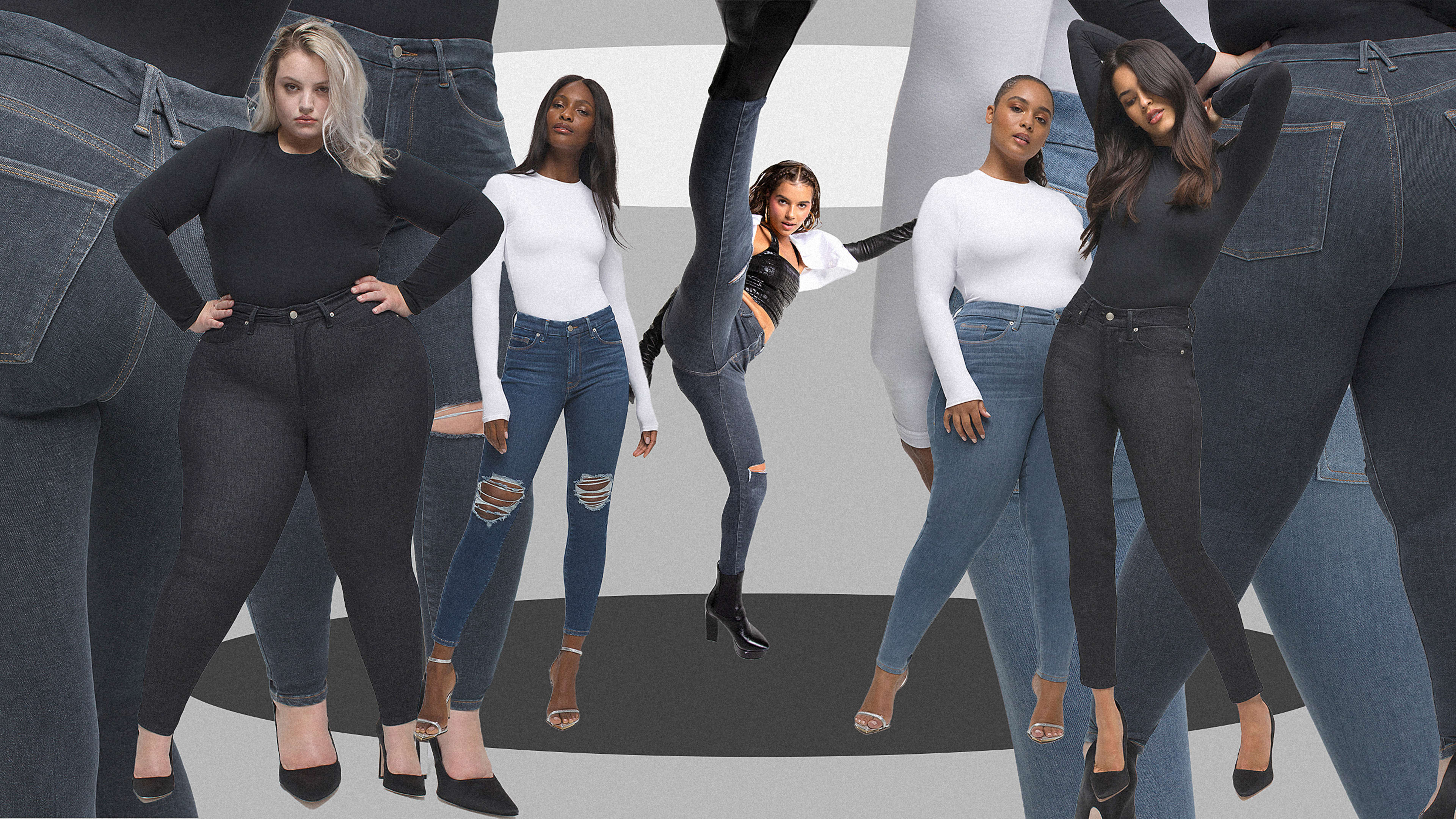Imagine a pair of jeans that magically adjusted to your body as you wore them day after day, year after year, even as your body changed. After an indulgent holiday meal, they’re not too snug; nor are they too loose on days when you feel your best. It seems like the stuff of a teen movie, but denim startup Good American may have found a way to turn this dream into a reality.
Today, the company, cofounded by Khloe Kardashian and Emma Grede in 2016, launched Always Fits, which does away with traditional denim sizing. Instead, it has five categories—A, B, C, D, and E—each of which covers four sizes. (The sizing goes from 00 to 32.) If you traditionally wear a size 8, for instance, you’d be in the B category, which encompasses sizes 6 to 12. This means that if you go up a size or two over the next few years, the jeans should still fit comfortably. The jeans start at $139 and come in six washes.

Of course, the market is flooded with stretchy pants, particularly with the rise of athleisure. But Good American wasn’t interested in making another pair of jeggings. Grede says it was important to design jeans that felt like real denim, which meant giving the fabric the heft and weight of cotton, along with all the traditional fixtures, such as the zipper, buttons, and pockets. “These are not jeggings,” says Grede. “If I could, I would banish that word.”

I tested two pairs. I’m on the higher end of size B, and when I first put the jeans on, they felt snug. (The feeling was particularly unsettling after wearing sweatpants for the past six months.) But after about an hour, everything changed. The jeans appeared to mold to my body, even at the waistband, and I wore them comfortably for the entire day. Grede says this is how they were designed: They’re supposed to adapt to the curves of the wearer’s body. But at the same time, the lycra in the fabric ensures that the material has good recovery, which helps it return to its original shape after being washed, rather than becoming baggy and misshapen. (Still, Grede recommends washing the jeans every five wears and air-drying them. “It’s better for both the jeans and the planet.”)
The Always Fits jeans align with Good American’s broader efforts to become more eco-friendly. Denim is a notoriously unsustainable product, because it requires a lot of water and dye to create. With this line, the company is increasing its use of more sustainable materials, including 5% recycled cotton. But more broadly, Grede believes that producing fewer sizes has the potential to reduce waste, since women won’t need to buy as many pairs of jeans. And from the company’s perspective, there’s likely to be less unsold stock at the end of the season, since each size will target more customers.
Ultimately, though, it seems like comfort will be the jeans’ main attraction. And the timing couldn’t be better. Over the last six months, consumers have gravitated toward sweats and loungewear, and as we reemerge into society, Grede believes we’ll have no tolerance for clothes that don’t feel good. “I believe that fashion will make a comeback,” says Grede. “We’ll want to get dressed and get together with other people again when we can. But we’ll just expect a higher level of comfort than ever.”
Recognize your brand’s excellence by applying to this year’s Brands That Matter Awards before the early-rate deadline, May 3.
